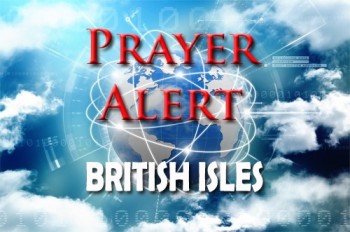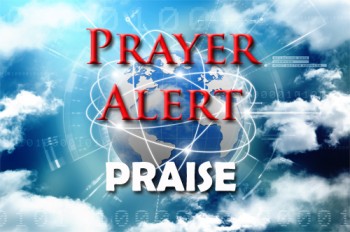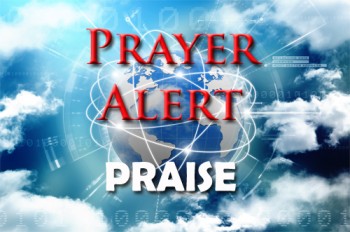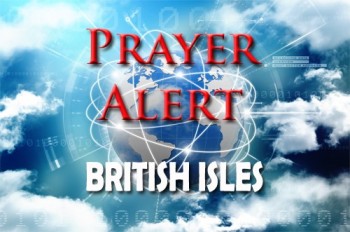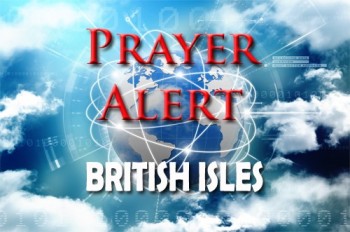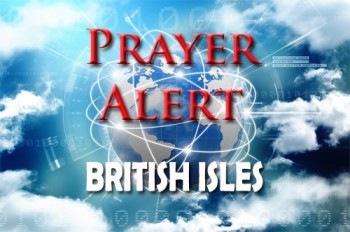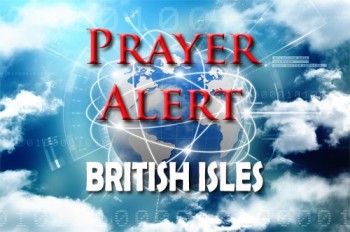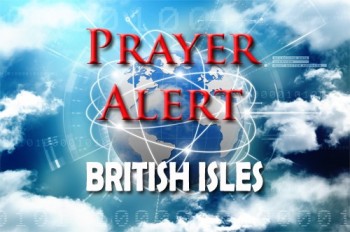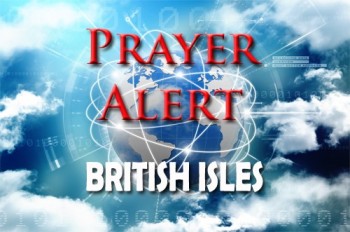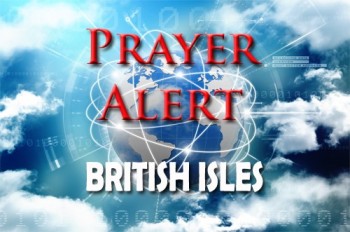Displaying items by tag: United Kingdom
Largest firms 'fail to disclose emissions'
New UK rules require big companies to disclose their greenhouse gas emissions. 12% of businesses have cut greenhouse gas emissions enough to keep global warming below two degrees and only 20 of 160 big emitters are reducing emissions fast enough to meet the Paris agreement. Meanwhile globally a quarter of the highest-emitting publicly-listed companies have actually failed to even report their greenhouse gas emissions and nearly half do not properly consider the risks from the climate crisis in decision-making. The wealthy are causing climate change. It is over three years since the Paris agreement and although the corporate sector is improving its climate planning and performance, it is not fast enough. Barely 12% of companies in oil, gas, steel, aluminium, utilities, car manufacturing and air transport plan to reduce emissions at the rate required to keep global warming below 2C.
Answered prayer: Christian wins appeal
In 2016 Prayer Alert intercessors were asked to pray for Felix Ngole, a Christian student removed from a postgraduate course in social work at Sheffield University. A judge ruled against him in 2017, but now three Court of Appeal judges have overturned that ruling. Felix said, ‘This is great news for everyone who cares about freedom of speech, especially those working in or studying for caring professions. As Christians we are called to serve others and care for everyone, yet publicly and privately we must also be free to express our beliefs without fear of losing our livelihoods. I am thankful to the judges for recognising that I did not discriminate against anyone.’
Footballer’s faith
Raheem Sterling, 24, one of England's most talented footballers, has described his Christian faith as ‘massive’. He was interviewed by GQ, a news magazine based around music, models, women and news and directed at young adult males. Sterling says he was brought up in the church, and his mum taught him about faith from an early age. When he moved from home, his faith deepened and now he has ‘no doubt’ that God exists. ‘I know for sure. A lot of scientists, the cleverest people in the world, will tell you that there has to be a creator. They need answers, but you just have to sometimes accept that it's bigger than you and you have to leave it at that.’
Our bishops in Westminster
During five days in Westminster the House of Lords bishops spoke on serious youth violence; the need to scrap the ‘two-child limit’ welfare policy; climate change; child refugees; independent living for disabled people; higher education funding; music education; prescription opiates; and gambling and gaming machines in the armed forces (see next article). The foreign secretary was questioned about religious literacy training for diplomats, and about landholdings in Scotland. Please pray for God’s anointing and wisdom on our bishops as they raise issues of injustice and comment on how government policies are being implemented.
Problem gambling in the armed forces
For many former members of the armed forces, the transition from active service to civilian life can be challenging. It is well known that transitioning veterans are more likely to engage in high-risk behaviour like excessive gambling. Research from outside the UK has consistently demonstrated that problem gambling is a more prevalent issue in armed forces populations than among civilians. Recently the Bishop of St Albans was told by the MoD that it had not funded or conducted any research on problem gambling among service personnel or veterans, but knew of a study suggesting veterans are at an increased risk of developing gambling problems. Earl Howe said that gambling has serious implications, both as a potential security risk and in connection with issues of mental health.
Problem gambling: FOBTs
Fixed Odds Betting Terminals (FOBTs) are called the crack cocaine of gambling. In April the government reduced the maximum stake on FOBTs to £2. Before then William Hill Bookmakers, with 2,300 shops and 12,500 employees, relied on FOBT machines for over 50% of their turnover, particularly in inner-city and urban areas where they attracted younger customers. Now William Hill are to close 700 venues, and will apply voluntary redundancy and redeployment measures. The Safer Online Gambling Group said, ‘Perhaps William Hill can deploy its staff into treating addicts and supporting those who are vulnerable across their other betting outlets’. The NHS treats gambling addicts as young as 13 at their national Problem Gambling Clinic
Rural church and mission
Rural Christian leaders find it increasingly difficult to maintain hope, energy and creativity for mission. There are, however, encouraging signs as people across rural Britain seek God together in regular prayer for their communities and take the initiative as He leads. Prayer in and for particular villages has led to Bible studies, community choirs, retreat days and coffee shops. New disciples are being formed. Pray for a multiplication of local prayer teams, and join them in praying that the Lord will send the rain of His Holy Spirit. Pray for a fulfilment of God’s promise: ‘When the poor and needy seek water I, the Lord, will answer’. (Isaiah 41:17)
Sajid Javid’s visit to Israel
When Sajid Javid visited the Western Wall on 1 July, it was the first time a senior British government official had visited the holy site in 19 years. He grew up in a Muslim home, and said his father taught him the deep connection that both Jews and Muslims have to Jerusalem. The director of the Western Wall Foundation explained the wall's spiritual and historic significance to the Jewish people. Javid said he was very excited to be there, and could feel the spiritual power of the holy site. He recited Psalm 121 with a leading rabbi, and took time to place a note between the wall's stones. The rabbi said, ‘Your visit is evidence that it’s possible for Jews and Muslims to live together in this small place without harming one another.’ Javid agreed: ‘We love Jewish heritage very much and appreciate it.’ His wife, Laura, is a church-going Christian. See
Jeremy Hunt warns China against 'repression'
The 1984 treaty between the UK and China paved the way for sovereignty over the territory to pass back to Beijing. A joint declaration set out how the rights of Hong Kong citizens should be protected for the next 100 years. Hong Kong has a judicial system independent from China, but a controversial proposed extradition bill flies in the face of the treaty. It caused huge protests, and activists occupied parliament buildings. China’s reaction to this event prompted Jeremy Hunt to summon its ambassador on 3 July, saying that he rejected Beijing’s ‘unacceptable behaviour and inaccurate remarks’. On 4 July China warned the UK not to interfere in its domestic affairs and labelled the UK ‘hypocritical’, saying that it no longer has a say in how Hong Kong should be run and managed. See also ‘Hong Kong Christians’ in world section.
Royal baby Archie’s christening
Buckingham Palace has confirmed that Archie Mountbatten-Windsor will be christened in a small private ceremony by the Archbishop of Canterbury in the private chapel at Windsor Castle on Saturday 6 July. The identities of the godparents ‘in keeping with their wishes will remain private.’ The decision to keep the event entirely private, with no access for any television cameras or news photographers, even as they arrive at the chapel, has prompted considerable debate. The Duke and Duchess of Cambridge had allowed one television camera and one photographer to take pictures as the family and godparents arrived for the christenings of their children.
